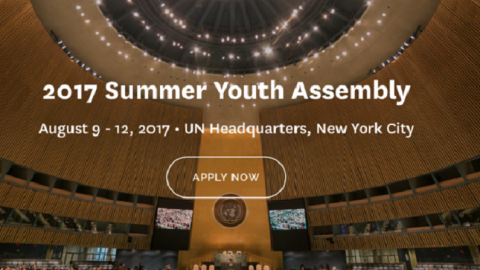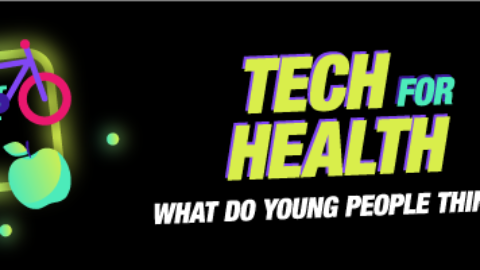In my years of practicing as a Human Resource Consultant, I have come to understand that many job applicants are unable to prepare winning Curriculum Vitaes (CVs), mainly because they do not fully understand its purpose. When the purpose of a thing is unknown, abuse is inevitable; and this is also true for a CV. Simply, the purpose of a CV is to earn you an interview, and it must be enticing enough to make that happen.
Difference between a CV and a Résumé
Many applicants and employers erroneously believe CVs and Résumés are the same, yet they are different. What differentiates CVs and Résumés are in the length, content, and usage, but with the same intent, which is to give information, succinct or detail, about the owner.
The word Résumé is a French word, which means ‘summary.’ This is why a Résumé is a summary of your skills, experience and education – usually prepared in one or two pages. A Curriculum Vitae (CV), on the other hand, is a Latin that means ‘course of life’ which is why it depicts substantial information about the bearer. A CV is usually more than a page depending on the length and vastness of the owner’s experience.
Both Résumés and CVs should be written in third-person tenses so as to appear formal and objective. It is also to be presented in reverse chronological order with recent information appearing first. What is common among employers and job seekers in Nigeria is a CV; which is why I will lay more emphasis on how to write an endearing CV.
Format of a CV
There is no standard one-size-fit-all format of a CV; what is important is the orderliness displayed in presenting the different segments of the document.
Contents of a CV
A CV should have the following information:
ü Contact Information: You may wish to have this as an ‘header’ so it appears on all other pages of the CV, as this may help to identify other pages of your CV should it get unstapled and mixed with others. It includes the bearer’s Name, Contact Address, Mobile Number, and Email address.
ü Career Objective: This can be as short as a sentence or as long as a paragraph. It is a brief professional description of you. It succinctly illustrates the skills, experience, personal strength, and value you possess. Your career objective may either entice or dissuade a prospective employer from reading the remaining parts of your CV. Avoid using clichés. Stand yourself out by emphasizing your expertise and intellectual interests yet don’t box yourself. It is unprofessional to use someone else’s career objective as yours. Note that while a career objective is suggested, it is NOT a must.
ü Biodata: This includes biological information about you, that is: Date of Birth, Nationality, State of Origin, Marital Status, and Gender. Except otherwise requested, do not include your height, colour of eyes, colour of hair, number and age of children, spouse’s name, and other seemingly irrelevant information.
ü Education: This details the institution, period, and qualifications you have acquired. If you are currently undergoing a course, it should precede others, and be sure to write ‘In view’ in front of it and when you are expected to complete the course (e g. In View, December 2013.)
ü Employment History: This outlines the organizations you have worked (or volunteered), dates, job title, job summary, and your achievements (if any) while on the job; e. g. increased sales by 15% within the first year.
ü Trainings: Include training programmes you have undertaken and itemize the skills you acquired which should be relevant to the position applied for.
ü Honours and Awards: State any award, honours, or scholarships you have received.
ü Leadership posts: State if you have held (or currently hold) leadership positions. E. g. Head Boy of Maryland Comprehensive High School, 2008/2009 Session; Led 107 members of the Press Club from 2010 to 2011; etc. Be specific!
ü Publications and Presentations: State here if you have authored, co-authored, or contributed to any publication, including papers you have presented.
ü Professional Membership: List your membership of any professional body, especially the ones relevant to your profession and the position applied for. E. g. Member of the Institute of Chartered Accountants of Nigeria (ICAN).
ü Interests: These include your hobbies and leisure activities especially those relevant to your profession. Avoid solitary interests e. g. watching action films, playing Nintendo games, etc.
ü Languages: State if you can speak more than one language, including foreign languages e.g. French, German, Latin, Chinese, etc.
ü Reference: While you may wish to simply have ‘Available on Request,’ it is advisable that you provide details (name, address, phone number, and email address) of at least two (2) people who can give you a work and/or personal reference. Professionally, at least one of your referees should be a former employer; however if you are a fresh graduate with no work experience, you may include someone who can attest to your suitability for the job. It is imperative to inform the referees before including his/her name. Ensure your reference is updated when the need arise.
Dos and Don’ts of CV Writing
- Do not type ‘Curriculum Vitae’ on the header; it is already implied.
- Avoid abbreviations. Assume the reader does not know the meaning. E.g. Member of ICAN (ICAN should be in full, you may then add ‘ICAN’ in bracket).
- Ensure your CV is not looking ‘choked’, provide some space in between yet avoid large spaces that will make your CV too long.
- Use action words like: Increased, Modified, Conducted, Developed, Led, Planned, etc. E.g. Successfully planned the 1st Job Fair of the company.
- Avoid using informal email addresses, e.g.: iamabigzgurl@yahoo.com, pamelahotchic@gmail.com, or fineboynopimples@hotmail.com. You may combine your first and last name e. g.: ebun.oke@gmail.com; chiomaorji@yahoo.com; mabubakar@ymail.com.
- Do not give false information, including your age; it is a criminal offence.
- Do not fold your CV; use an A4 or foolscap envelope to post or submit it.
- Play down on your weaknesses and failures; focus on your strengths and successes.
- Avoid typographical and grammatical errors; and make proper use of punctuations. Edit and get someone to help you vet it.
- Except by request, do not include, or scan a picture or passport photograph on your CV. It is unprofessional.
- Avoid using big or small fonts; a size 12 Times New Romans or Arial is moderate.
- Do not include salary details of former employers or expectation from the prospective employer. Wait for the negotiation table.
In all, remember less is more! Make your CV as simply irresistible as possible.
Success wishes.
_____________
Bukky Shonibare is the Group CEO of “The 555 Group” owners of 555 Consulting Limited (Human Resource Management, Operations Management, and Strategy); 555 Foods (owners of ‘Beans City’); 555 Impact Centre (Training & Development); and 555 Foundation (Corporate Social Responsibility with focus on promoting Entrepreneurial Development, Personal Development, and Poverty Alleviation).Bukky has a Certificate in Journalism and Creative Writing from the London School of Journalism, UK; Diploma in Secretarial Administration; and dual Certificates in Entrepreneurial Development and Social Sector Management from the Pan African University, Nigeria. Read her full profile here






